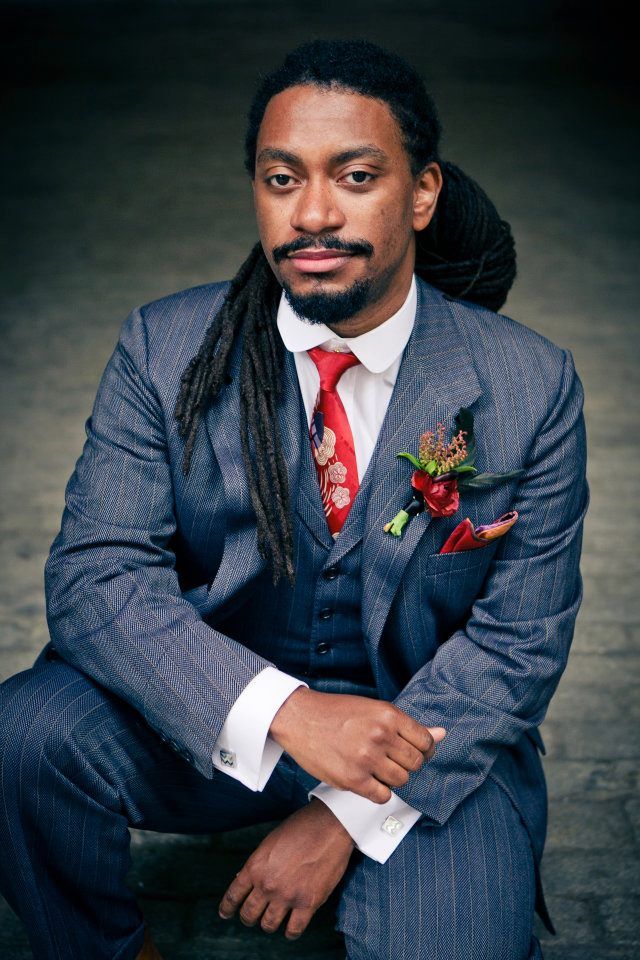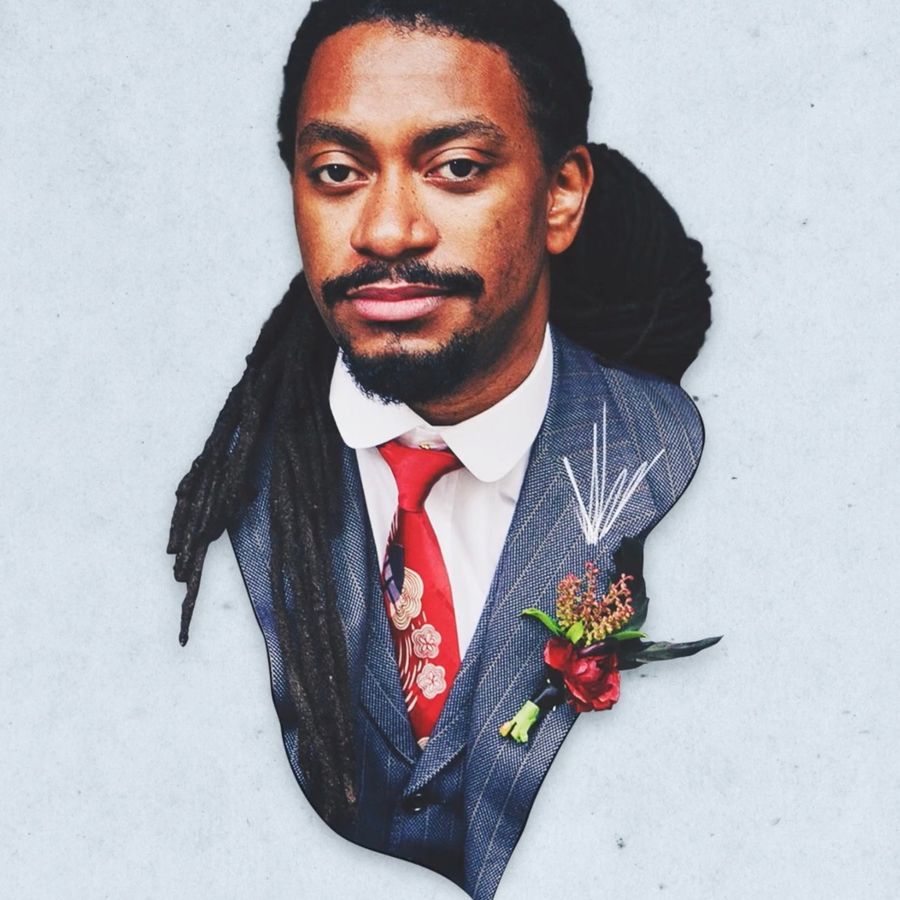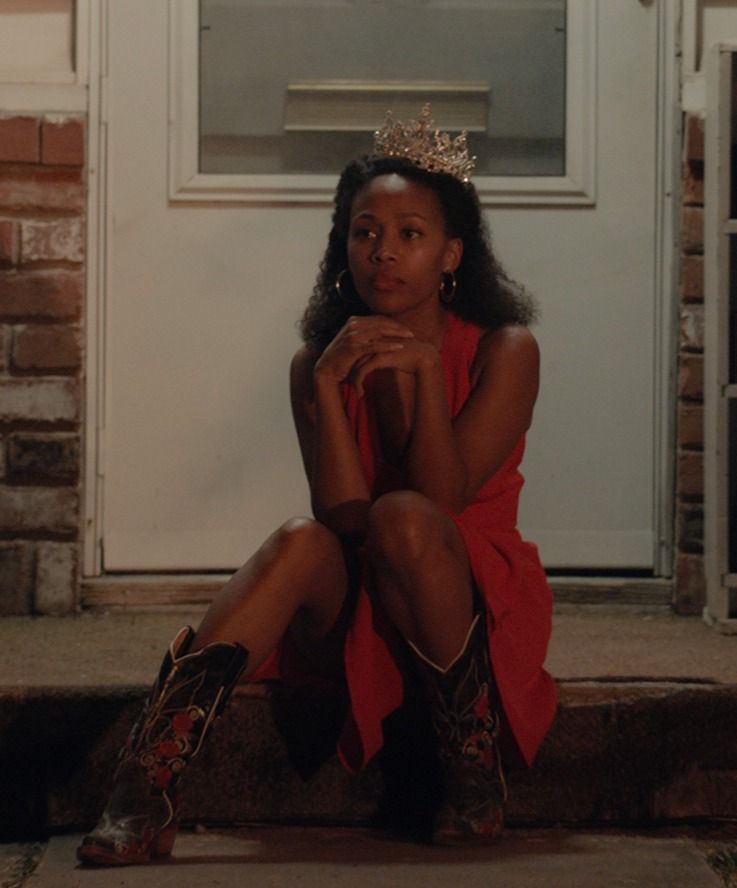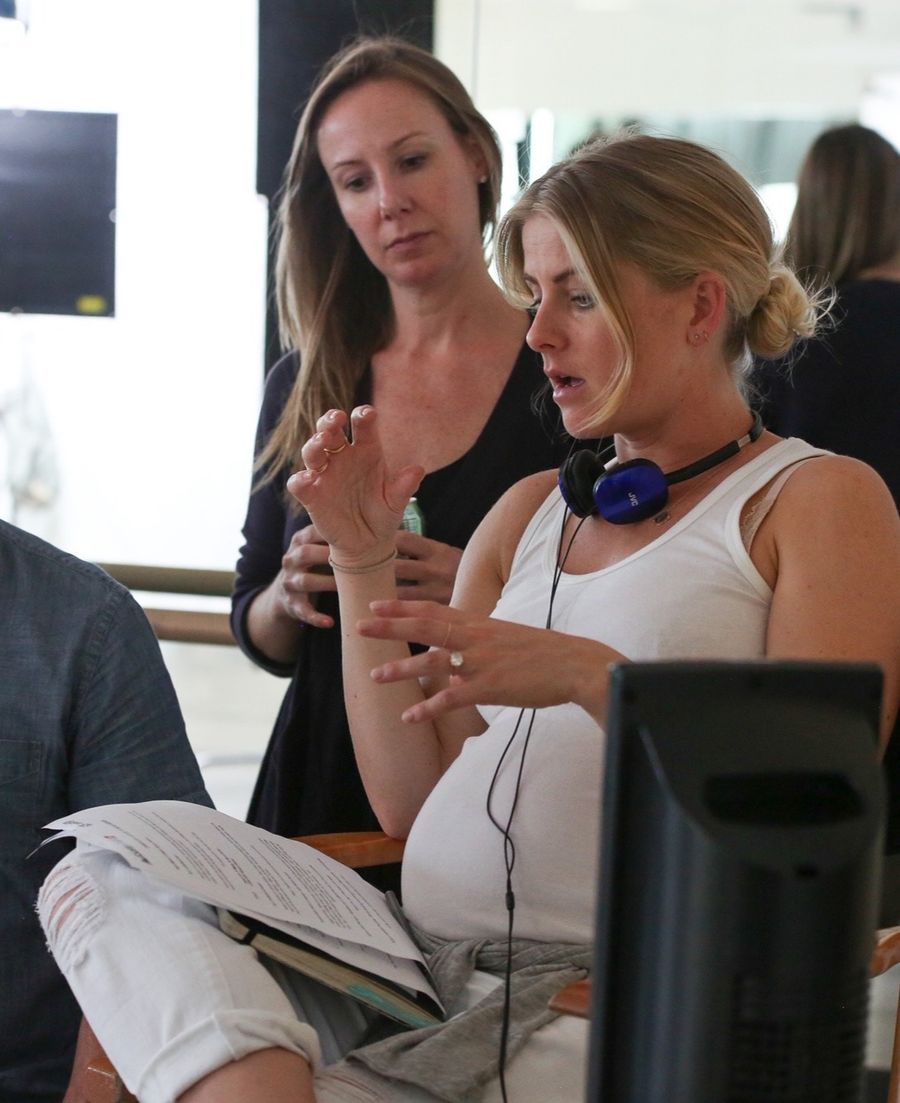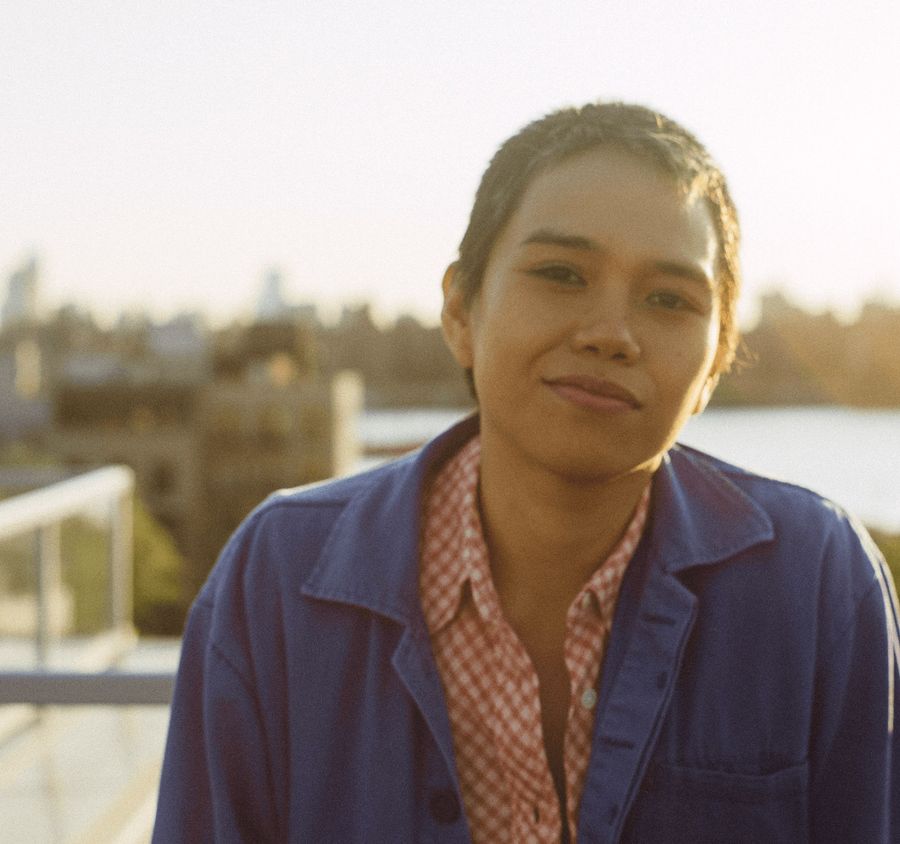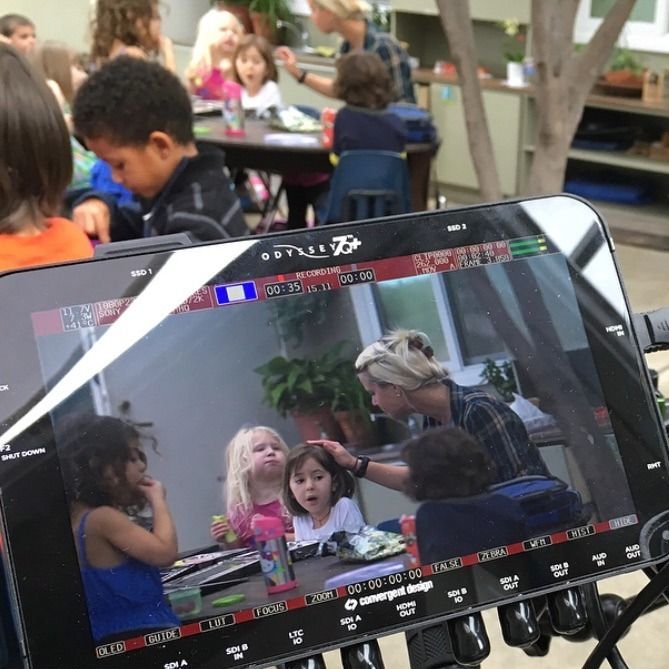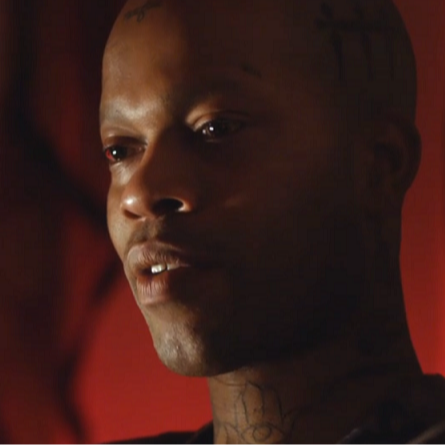Photos from Jason Nichols' work and Star Trek
Pulling Focus is a FTW interview series that spotlights established creatives who are making brave new career pivots with recent work.
"What is your sense of home now that you're trapped inside of it?" Jason Nichols asks on our Zoom call, which he's taking from the sunny California house he calls home with his wife and two kids. It's a creative prompt the collective he's a part of challenged him to answer during these strange, contemplative times. As he'll tell you, it took a long time for him to even fathom approaching that kind of question, having spent decades building an ad agency career focused on sharing other people's lived experiences.
The independent creative director and writer has worked with the biggest brands in world, from Google to Toyota and Nike to Nokia, and pivoted to more social impact campaigns in an effort to get closer to his core. But until that prompt, there was one topic he never tackled: himself. Thus, "home…" was created.
An impressive mixed-media short, in "home…" Nichols timelines the story of his life through techniques so clearly acquired from his experience in the commercial world. It's a beautiful, heartbreaking, and visual pop-up book of a film that sees Nichols stepping out of the role of creative director and into himself as a filmmaker.
Here, Nichols gets candid about why it took him so long to tell his own story, and what he hopes to do now that he's owning, and trusting, himself as an artist.
FTW: What inspired you to create “home…”?
Jason Nichols: I’ve had this wild running journey around this country, most of it sort of out of my control. I didn't quite know how to tell it for most of my life. There was an opportunity at my last agency where each of us was giving a little insight about our lives. At the time, we were working with the client Google, so I knew all of their tools like crazy. I used Google maps to pinpoint all the places I've lived and added music and photos to it. That was the kernel of it, and then years passed.
Then in the collective I’m in, we recently started throwing out creative challenges to the crew to stay creating. So the first creative challenge was: what is your sense of home now that you're trapped inside of it?
The pandemic, George Floyd, and social unrest around the world really started to shape the story as not only physical places and my lack emotional connection to them, but also the culture surrounding where I was living and how it shaped who I am as a person. The culture within the home and the culture outside of the home. That's where stories of race, of abuse, of being yanked around from different places really shaped my personality and my way of being in this world. That was the genesis.
Coming from a space where you're creating for a client and serving the needs of other people, what was it like to turn that attention to yourself?
It’s been a lifelong battle. My mother was the first artist I knew. She had, of course, a full time job, but she was making these beautiful drawings when I was a kid. From that moment on, I knew I wanted to be an artist. I had all of her support and everything I did, like art school, was leading to that. But the moment I graduated, I got pulled into advertising and never looked back.
So I became a creative. It's a different, separate lens on things. We would bring artists in to create these grand visions, but I’m not that. It was tough to swallow for awhile that that's who I was. I felt like I worked with some creatives who were also artists, but I allowed myself to create the separation between the two.
Creating “Home” was the first time in a long time where I allowed myself to consider that I actually am an artist. It was the first time where I felt like my story was worth telling.
What’s interesting is the team I worked with on this are all also going through similar transitions. Felipe Griebel who co-directed, edited and animated with me is evolving to recognize and set free the artist in him after years being known as “a really fast, really good editor.” And my best friend of 20 years, Sigmund Washington, has been a multi-talented musician since I’ve known him but in the past couple years stepped out as a fantastic stop motion animator. And Renato Forster who did the production design and illustration has worked in advertising for years and is having a great evolution as a visual visionary for film. We’re all tapping into our artistry at the same time and are so excited to see what we’re all capable of.
What was the fear in just being the artist?
Being a poser. Some people have lived their life since birth as artists. I went the industry route. I had a lot of responsibilities, I had to take care of myself and support family and build a family of my own. I never had the time to just be an artist. And for a long time, I thought I'd missed the boat on that. The idea of being an artist seemed like something that I couldn't afford to do.
If you think about it, an artist, at least in my interpretation, is a person who is entirely compelled to express themselves in whatever form is required. I had this vision of an artist having to be a certain type of person that was living a certain life, and I wasn't living that.
It’s that impostor syndrome. To me, being a creative was being on the periphery of an artist’s life and you don't necessarily have to ascribe to a certain lifestyle. Being a creative pays the bills and is this way to create this traditional life of stability, depending on how you were raised, that you were conditioned to need. It’s hard to break out of the binary thinking.
And there's that weight of life selling out that exists on the shoulder, too. I don't want to consider myself being sold out. I remember going back to my college years after I graduated and bumping into somebody I went to school with. They asked me what I was up to and I told them advertising. They were like, "Yeah, I can see that for you." At that time, it was a stab in the heart, because I had such a longing to be the artist. I don't think of it that way anymore.
I have friends who, since childhood, wanted to be in advertising and that's extraordinary. But I ended up there. Because I didn't feel like I was born for it, I worked extra hard to make sure I earned my place. I was always being torn apart by feeling like I owed the industry, but also didn't quite fit into the industry. Which is why I went that slightly different route where social impact was more at the center of things.
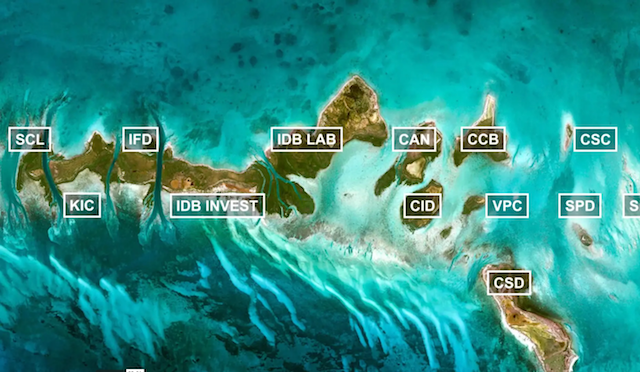

It seems like you found that middle ground where you could put your heart into it as a creative.
Yeah, that made a huge difference. Because there were some years there where I was like, "What am I doing?" Some people are so passionate about the industry, but I was constantly hearing from people that I was too nice for it.
Like, is that a nice way of saying I don't belong here? Or is it a nice way of saying that I'm not strong enough to handle the intensity of this industry? It’s nonsense. I have the will to accomplish anything. Me not having that cutthroat quality or standing out because I couldn't do anything but lead with kindness, which I guess seemed like an anomaly, made me rethink my relationship with it.
Am I too nice for the industry or is the industry not what it should be? And do I have to find a way for it to be that so I can exist within it?
Since then, I've had some very strange experiences that let me know how negative and unhealthy it can be, but also how amazing it can be. After that realization, I found my way into projects over and over again that had a social good bent to them. It was all I needed to be doing. So I started working with GOOD Magazine and GOOD/Corps. And then a crew of us left there to start another agency enso, and that was that.
What was that job that made you pivot?
I was working on Microsoft. It was a very short lived stint with [Crispin Porter Bogusky]. It’s an amazing agency with incredibly talented people who are deeply passionate about this work, but culturally I just didn't fit in there. For Microsoft, selling products was at the forefront, while most of the work that I'd done prior to that was what I look at as leveraging the brand resources in order to empower communities. That's a loose way of describing it.
For example, when I worked on Nike Basketball, there were products that we sold, but we also built tools like Ballers' Network, which was a tool that let people create pickup games and allowed for intramural leagues to run their entire league through a mobile app. That made all the difference for me. I’m not just slapping price tags on creative work. I'm building things that get used and help people achieve the things that they want to try to achieve. That gave me a relationship to the work.
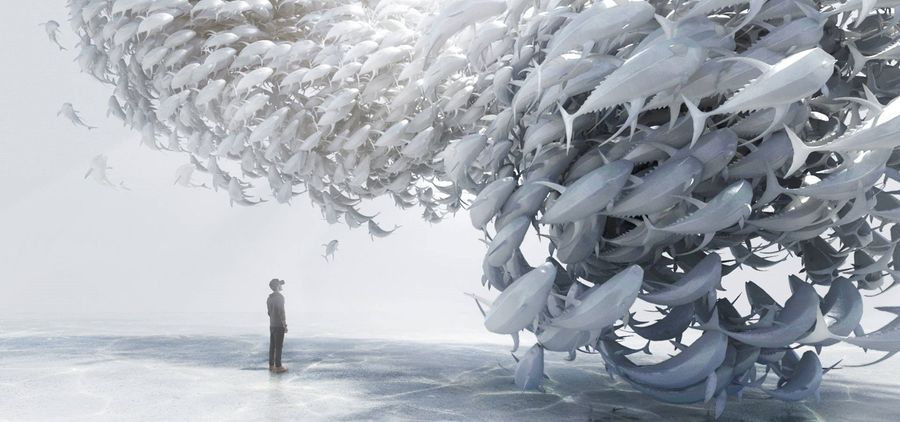
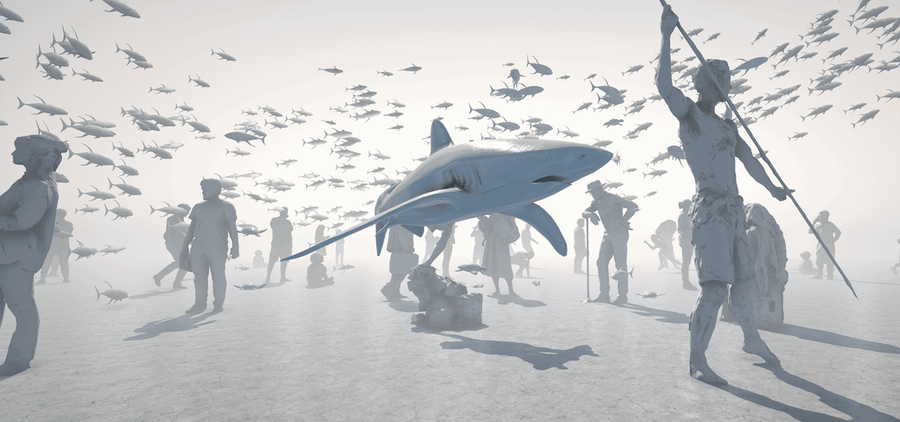
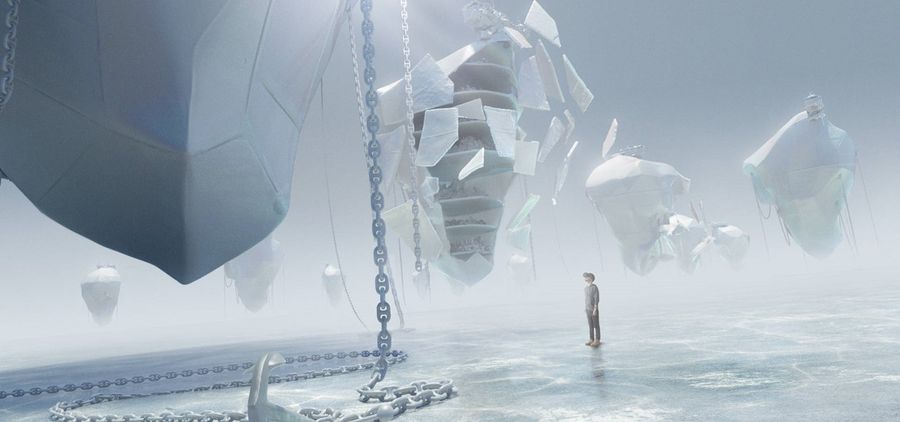
Now that you've opened up this new portal and are stepping into who you are as an artist, what is this new world looking like? What are you fired up to do?
After I had left the agency, I had this really big moment where a long forgotten memory came back to me from the end of my senior year of high school. The teacher was asking each student, “What do you want to be when you grow up?"
The thing I said was definitely oddball then. It got deep side eyes and giggles from the class. I said that I wanted to make movies about Black people existing in the future. At that time all you had was Lando Calrissian and Uhura in Star Trek.
But remembering that revitalized me. This idea of telling stories of us having a presence in the future is deeply interesting to me. This resurgence of Afrofuturism really excites me. I think there are a lot of opportunities to not just tell cool, edgy, action packed, sci-fi, futuristic stories, but really deeply, emotional, powerful human stories about what it's like to be us in a different era.
A lot of films use Black people as exotic, alien type creatures in the future. What about me just being me or someone like me that exists 300 years from now? Just a guy. What's his life like? What's our role in the evolution of technology and the adoption of technology and the adoption of cultures? When aliens mix with us, how do we adapt with those learnings?
Those stories need to be told, and I would love to be a part of telling them.
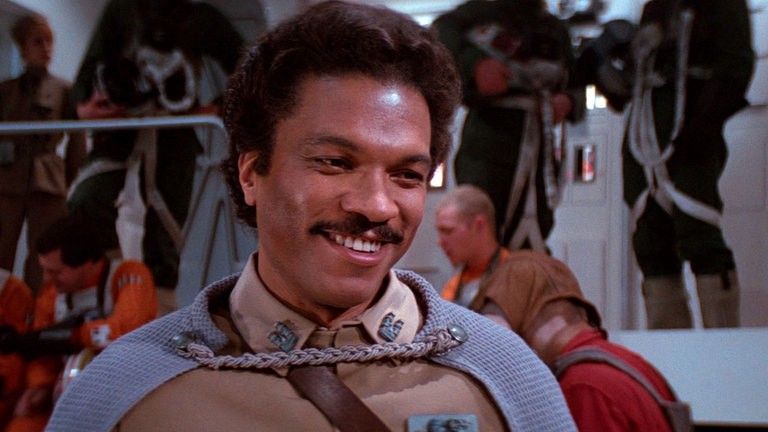
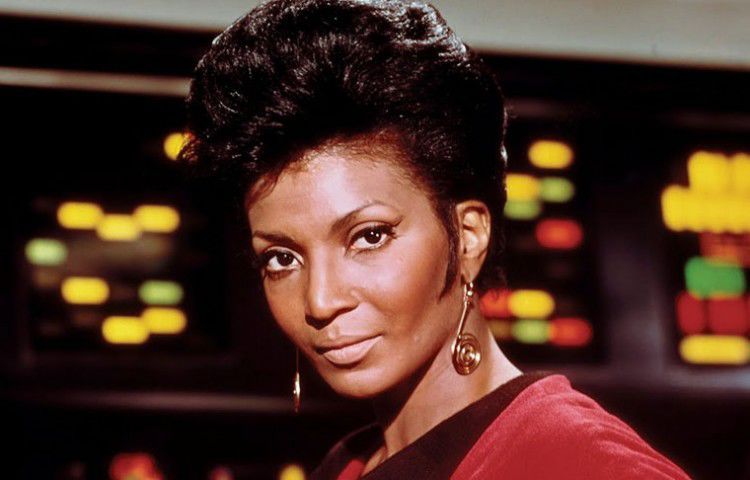
Do you have ideas written down?
I've got too many ideas, honestly. I’m working with Sigmund Washington on developing a sci-fi animated series. I just have this voracious appetite for painting a new vision for the future that isn't about representation. We don't need to create stories that represent people of color in them in the future. We need to tell stories as if it's a foregone conclusion that we're there. Because, we will be there.
"Do your best to not allow the world and yourself to devalue your own story. Because you are your own story, and if you devalue your story, you devalue yourself."
I’m thinking back to when you were talking about being a jack of all trades and an expert of none. It seems to me that throughout all the gigs that you've worked on, you've found this core that’s rooted in social good and social impact. Obviously, it can take various forms, but that to me, is your mastery. That's how I think of you as an artist. You know what I mean?
I really do very much appreciate that. It's something that I've evolved to not only accept, but appreciate about myself. I can help bring anything into reality in whatever way it needs to take shape, in any medium, in any place for any audience. And that's pretty exciting.
I know the term world-building is starting to trend, but it is something that has always compelled me since I was a little kid. And it's always been a part of my process for even advertising work. When we have an idea, my first inclination isn't to go deep on a specific execution of it. My first inclination is to see how big this idea needs to be, and what ecosystem it needs to have an order to fulfill its promise. For me, existing as a world builder sounds like a pretty, pretty smooth career that I could really get into.
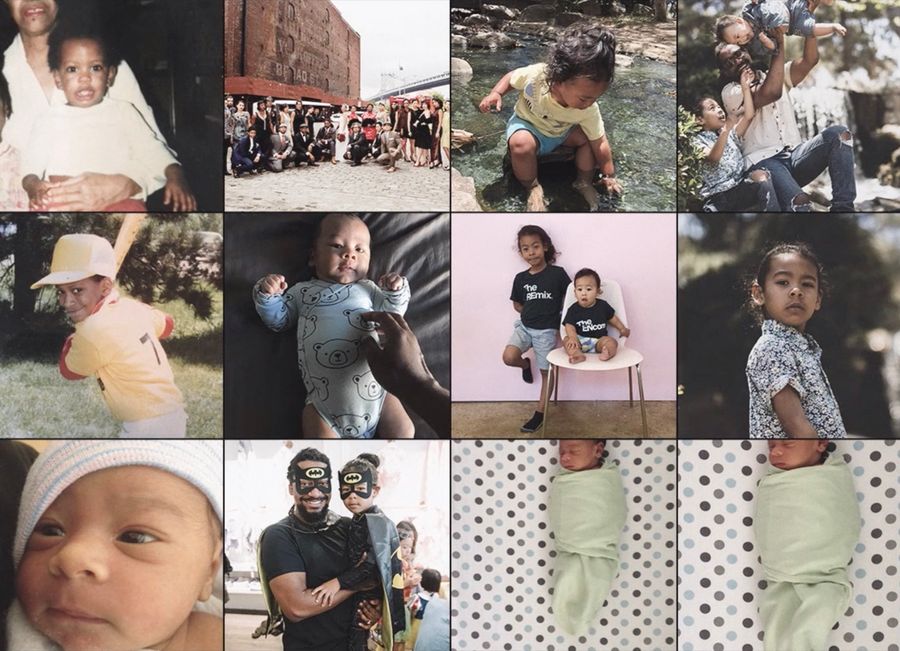
If you could give advice to your younger self what would it be?
This could get extremely emotional. Going back to a conversation we had a little bit earlier, I've allowed myself to believe that my story isn't worth telling. There are so many factors that contributed to that, so much brainwashing and shaping of my mind in my childhood, that allowed me to believe that that was true, that allowed me to live in the shadows, that drove me to be better at telling other people's stories than mine.
I've never had a good vision of myself. And so I guess the advice that I would give to any other creative, emerging or otherwise, is, do your best to not allow the world and yourself to devalue your own story. Because you are your own story, and if you devalue your story, you devalue yourself. There's a quote that I want to pull from a good friend, Mohsin. He runs this organization called MeWe International. And he says, "The stories we tell ourselves, about ourselves, shape the way we treat ourselves, each other, and the world around us."
I spent a long time telling myself stories about myself that aren't healthy. And even though I've had quite an interesting life and I've seen some successes, I have not been able to enjoy it as much as I should, and I haven't put enough value in myself or my own stories to tell them until now. The sooner you can get started telling your own stories, and the more confidence you can get in telling them, the better.
I got two kids downstairs. I guess it's less about telling my younger self that, but it's more about telling my boys that. That's the part where it really gets emotional. Because I don't want them to feel about themselves the way I've felt about myself all my life. I want them to get the headstart and I want to see what comes out of that.
Jason Nichols
artist / writer / director / creative director
Do good work, in a good way, with good people. For the greater good.
That's been my goal since day one. That mission has taken me around the world, introduced me to extraordinary cultures and people, and has allowed me to make creative work that truly touches hearts and minds and impacts lives.
I've also been able to work with good people at agencies like enso, GOOD/Corps, Crispin LA, Saatchi LA, TBWA\Chiat\Day, and R/GA. (Lots of slashes in their names.) And I've done good work for brands like Google, Nike, Pepsi, Khan Academy, Toyota, Nokia, and Old Navy.
The work I've been a part of creating has educated journalists on how to use digital tools in reporting, taught people how to speak the language of water, launched a new restaurant chain with aims of eradicating food deserts, helped small businesses grow online, created a global mindset shift about learning, stood up to international governments to protect everyone's freedoms on the web, inspired young athletes to perform at a higher level, rallied citizens to use technology to better their cities, funded thousands of everyday people's great ideas, and made everyday shopping more fun.
I'm hungry to do more.
Let's connect.
